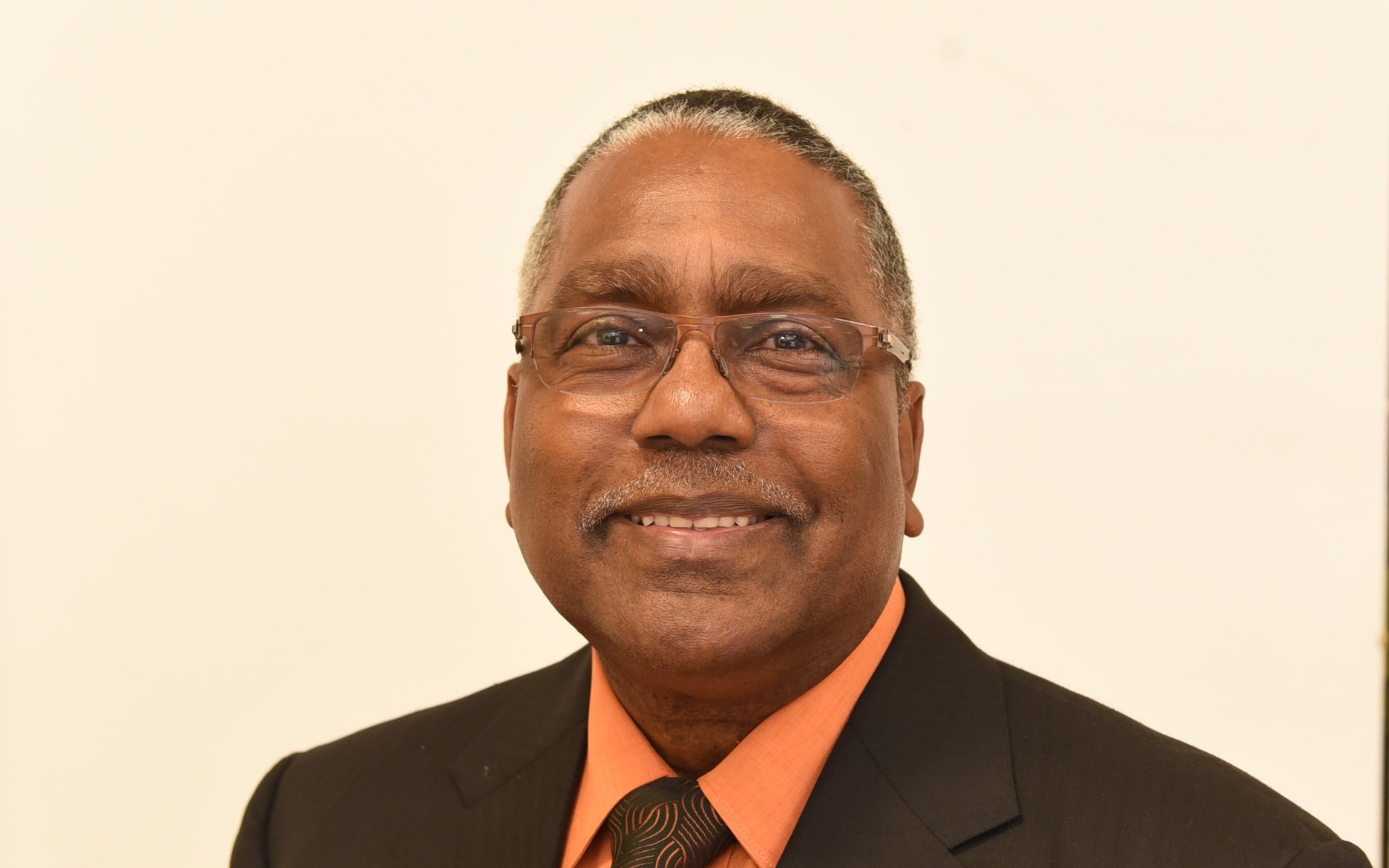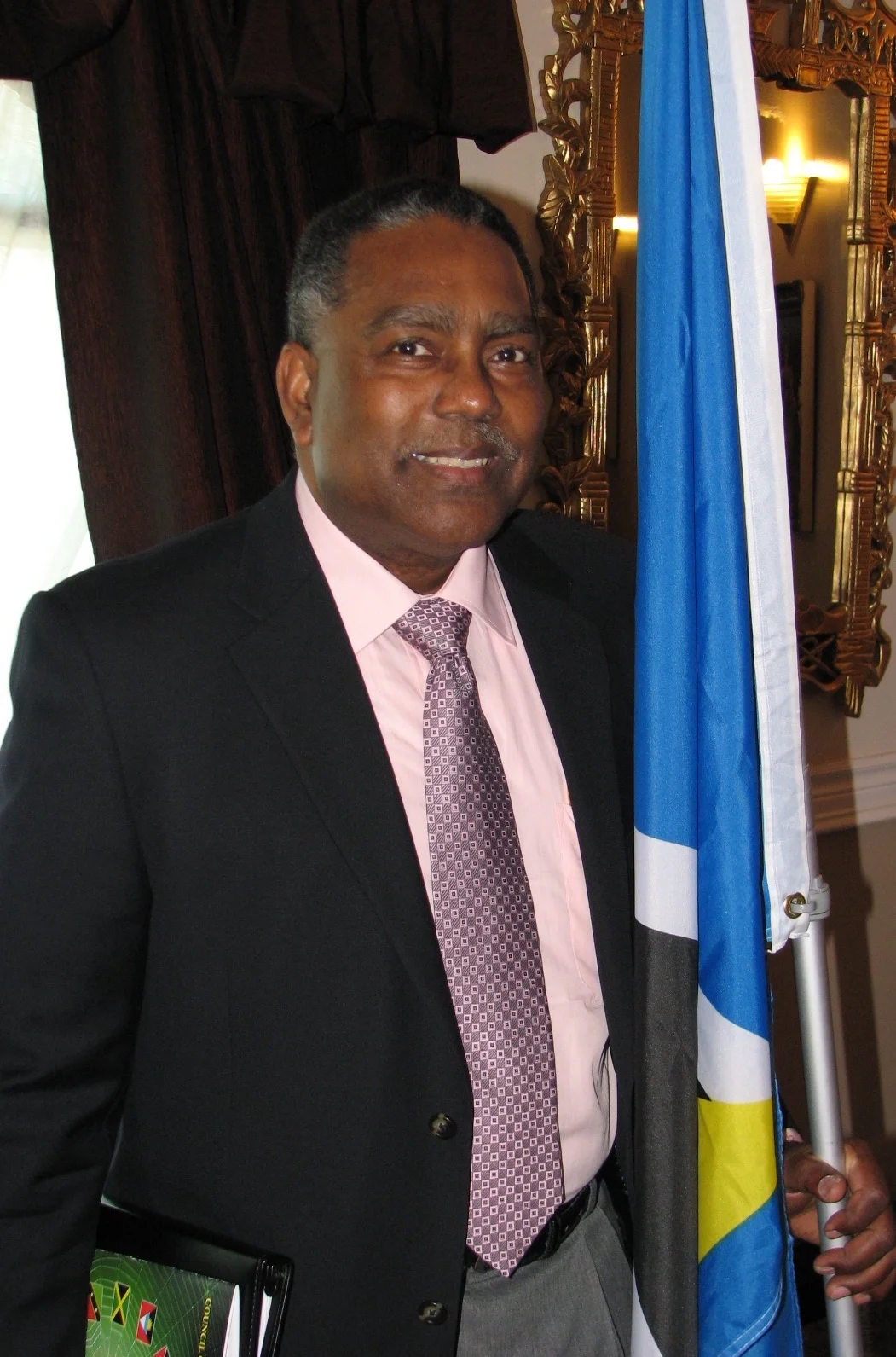Getting fired was a blessing for former journalist
March 11, 2019
Getting fired is sometimes a blessing in disguise.
Blackballed by media houses in St. Lucia because of a principled stand not to peddle the John Compton United Workers Party government propaganda, Greg Regis came to Toronto in 1977 to study law with the intention of returning home and becoming an advocate, adviser and counsellor for citizens who felt they were deprived of their constitutional rights.
That didn’t happen.
With the birth of his two daughters while in law school, Regis’ wife felt Canada would be ideal to raise a family.
He agreed.
Appointed an Ontario judge in 1999, Regis made history eight years later as the first non-White senior court judge for the Central East Region.
“Things worked out very well for me here, but I was mad as hell when I couldn’t get work in my country and was forced to leave,” he recalled.
Regis’ first love was journalism, a career he embarked upon 50 years ago.
He joined the The Voice newspaper in 1969 as a reporter/photographer after brief stints as a primary school teacher and lab technician and was St. Lucia’s correspondent for the Associated Press, the Trinidad Express and the defunct Radio Antilles.
With no journalism degree programs being offered in the Caribbean at the time, Regis came to Canada in 1974 to pursue media studies at Ryerson University. He returned home after graduation in 1977 and joined the government-owned Radio St. Lucia as the newsroom head.
Six months into the job, Regis was suspended and then fired a month later.
“The radio station fell under a board whose three-year term had expired,” he said. “When that happened, George Mallet (he was a high-profile government minister) took over and it was during that time I was suspended. When a new board was appointed, I was fired for ‘broadcasting inaccuracies’. The government would send their press releases to us with the expectation that it would be carried just the way it was prepared. Basically, they wanted us to be a public relations firm for them and I wasn’t prepared to operate under those circumstances.”
Greg Regis (Photo by Ron Fanfair)
Regis soon found out that being blacklisted by a government translates into harsh consequences.
His previous employer, The Voice along with Radio Caribbean and SLTV – a small television station – refused to hire him.
“Basically they said we are not touching you with a ten-foot pole,” said Regis. “I had job offers from the Trinidad Express and the Barbados Advocate, but I couldn’t get work permits. I had a choice of either staying in St. Lucia and becoming an alcoholic or finding another career.”
On his return to Canada, Regis found a job with CBC-TV as an editor.
“I thought I was going to be involved in news preparation, but I was pushed into production which wasn’t what I wanted,” he said.
Regis enrolled in Osgoode Hall Law School while holding on to the full-time job at CBC to pay his bills.
Prior to joining the bench, he was an assistant crown in Durham for eight years and an Ontario Crown Attorney’s Association and Delos Davis Law Guild member.
Regis was sworn in on the same day that his late mother, Anastasie Francois, celebrated her 82nd birthday in January 1999. Though she didn’t attend the ceremony after sticking to a vow that one Canadian winter was enough, family and friends travelled from St. Lucia, England, the United States and other Canadian provinces for the swearing in.
“That was one of the proudest moments not just for me and my family, but for the West Indian community of which I was an active member,” said Regis. “People were proud and they shared the moment with me. I took that gesture very seriously.”
His community service is long and extensive.
Regis was a former Jane-Finch Community Legal Services executive director, chair of the Caribbean Cultural Committee that organized the annual Caribbean festival and the Canadian Centre on Minority Affairs and a member of the Toronto Police Services Board advisory committee on drug abuse, the Multicultural Council of Oshawa, the St. Lucia Association of Toronto and Theatre in the Rough.
On the bench, Regis – who believes judges are human beings dealing with human problems that they should always be able to relate to – was very proactive.
“When I was appointed, there was still a large number of judges who thought their job was to be technical and they needed to separate themselves from the community,” he pointed out. “It was all too clinical. I am, I think, part of that group of judges who have been successful in changing some of those attitudes. We are dealing with people and no matter how bad the crime one has committed, a judge has to show that person respect. I believe the justice system has to be humane and kind. The vast majority of people that come before us in the courts are first-timers and we will never see them again. They made a mistake, but they aren’t necessarily bad people in the morale sense. Treating them with respect and encouraging rehabilitation, I think, is ultimately good for society.”
As a member of the judicial education program, Regis conducted workshops focusing on literacy as a barrier to access justice.
“In court, the language is very technical,” he said. “It’s bad enough for someone to be exposed to the weight of the state apparatus much less for that individual to be unable to understand what’s going on. I don’t believe that’s justice.”
Regis pointed to a case he was adjudicating in Minden to make his point.
“During the trial, the defence lawyer put his client on the stand and asked him, ‘What’s the constellation of his family’? he recounted. “The accused didn’t answer and the lawyer repeated the question. I intervened and told the lawyer I didn’t think his client understood the question. I then asked the accused if he had brothers and sisters. The judge is in charge of his court and it’s their duty to make sure whoever is in front of them has a fair hearing. If there is a language issue, you have to assist.”
Regis also championed the use of technology and, when appointed a regional senior judge, was instrumental in ensuring there were functional bail courts in every area of his region.
“I firmly believe that anyone who is entitled to bail shouldn’t spend more time than they have to in custody,” said Regis who has been a part-time judge since 2014.
Harry Jerome Lifetime Achievement Award 2014 recipient Greg Regis with his wife Althea, their two daughters and son-in-law (Photo by Ron Fanfair)
In 2017, he returned to Ryerson University to serve as a distinguished visiting professor, providing support to advance partnerships and act as an advisor to the law school project.
While Regis has given much to Canada, he yearns to help enhance the performance of the judicial system in St. Lucia and the wider Caribbean.
“On many occasions, I have offered to assist,” he said. “People listen but there is no follow-up.”
Clearing case backlogs is one area that Regis thinks he can help fix.
“I remember hearing a story in St. Lucia of a man who it’s alleged stole a pair of trousers from a clothes line and was still incarcerated six years later,” he recalled. “If the accused had pled guilty the day he was arrested, the maximum penalty for that crime is six months. I believe I can devise a project to help change that and I am not sure it will not take a lot of money. It’s a cultural thing and people need to start caring about other people. The notion that someone is in jail and he’s forgotten about doesn’t make sense. A big piece of the work is about educating people in the system to behave differently. That can be achieved without spending plenty money.”
While proud of his association with Ryerson, Regis is humbled to be a University of the West Indies (UWI) Toronto gala Vice-Chancellor Award recipient on April 6.
Though he didn’t attend the Caribbean’s top tertiary education institution, Regis pursued his secondary education through the university’s extra mural department.
“I certainly would have gone to UWI if they had a media studies program,” he said. “I have always considered it an important regional institution even though I felt that some of its graduates don’t have enough of a Caribbean development agenda. I find that when some of them go back to their respective islands, they get insular. I just don’t see that spirit of ‘Caribbeanness’. I believe that anyone who has had the benefit of a university education has a duty to give back to their community.”








